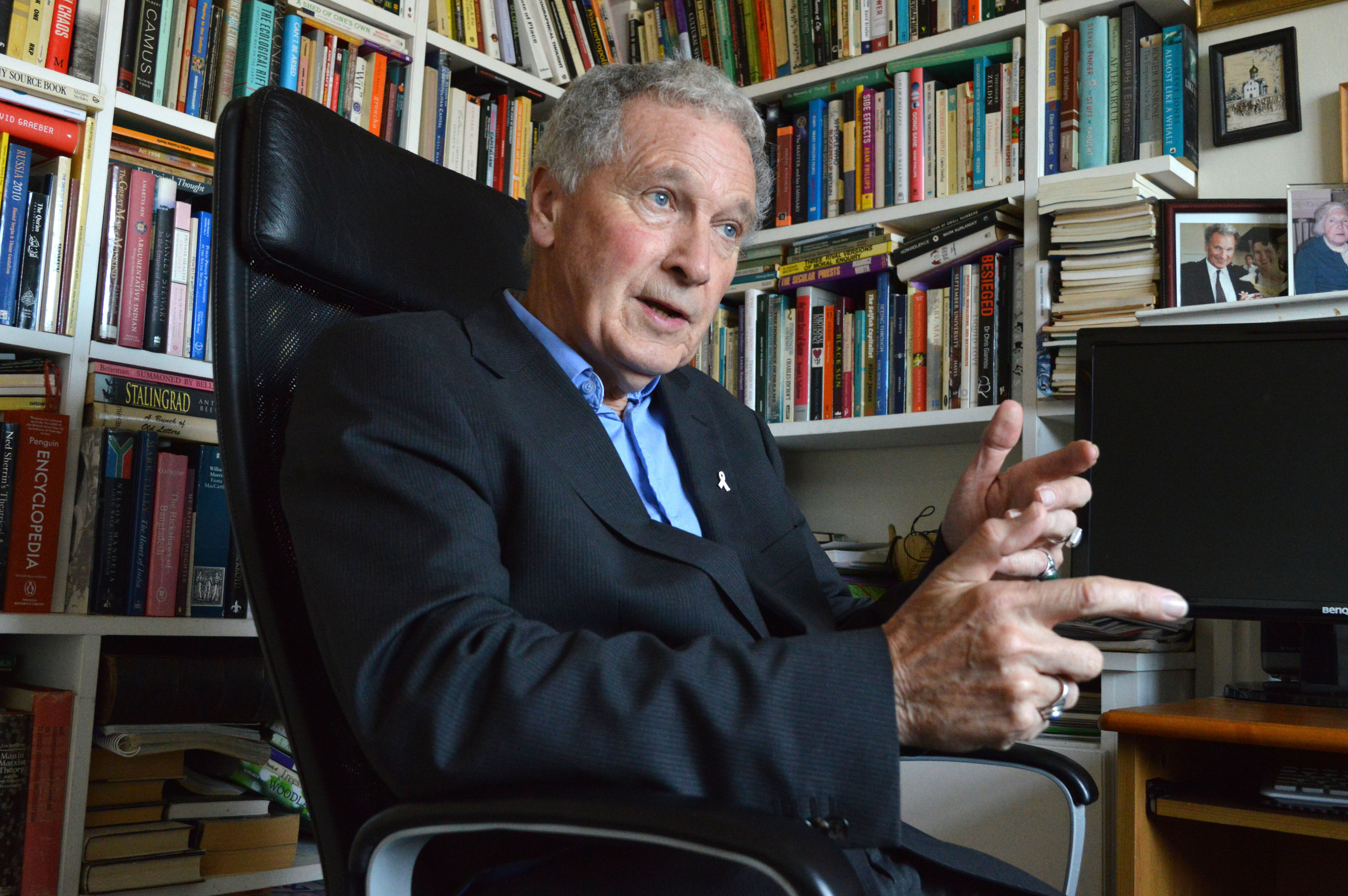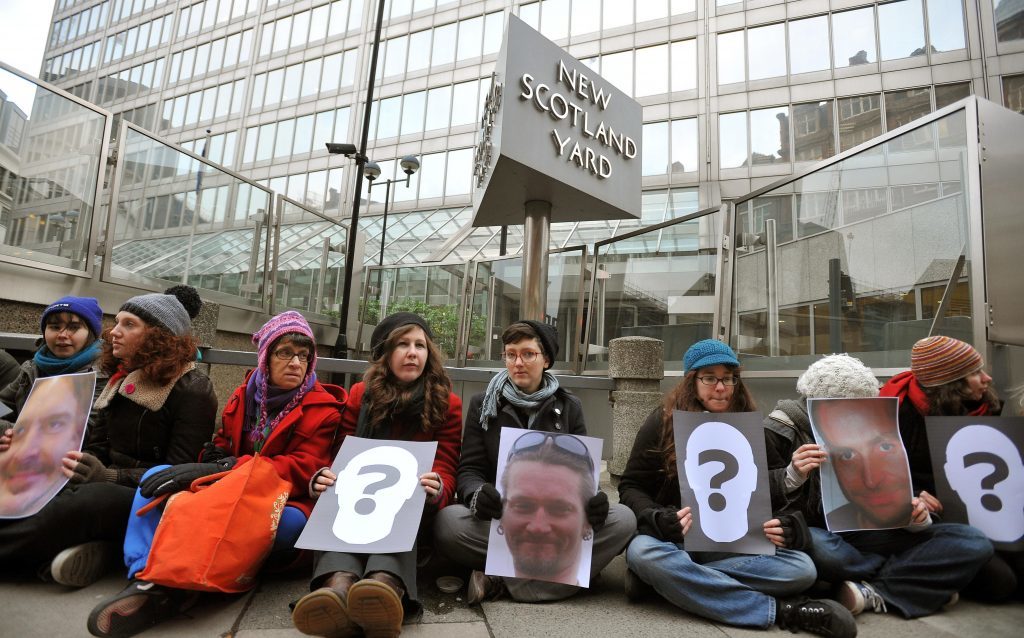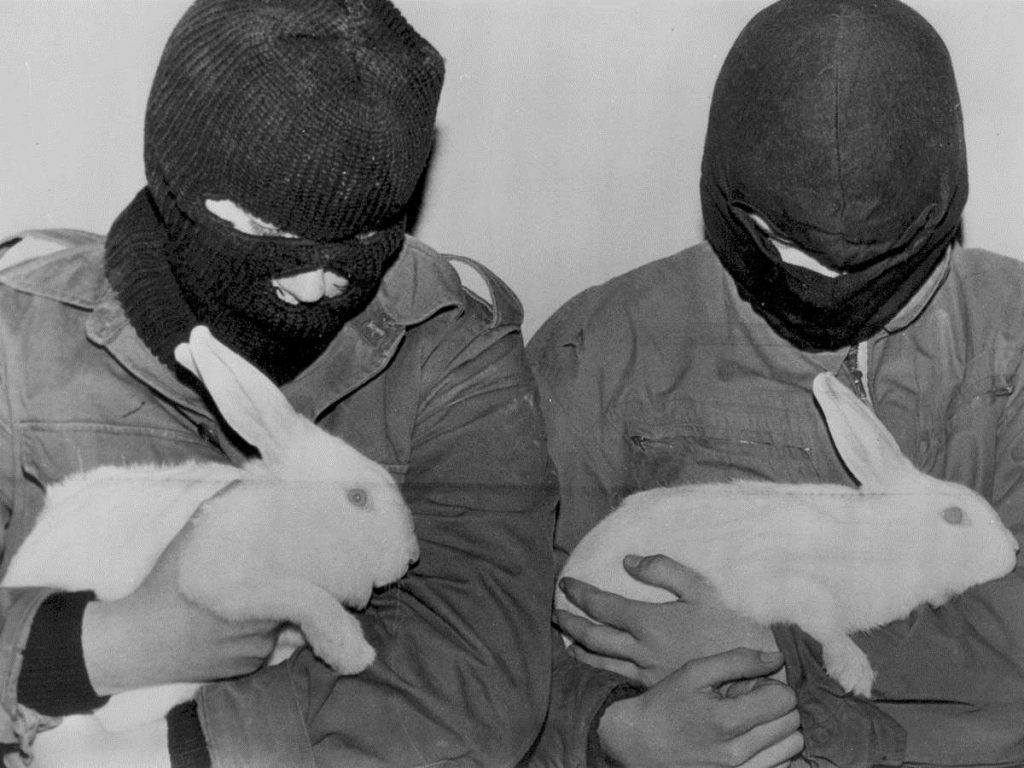
A DAD demanding to know if police stole his dead son’s identity has branded the practice “macabre” and “appalling”.
Gordon Peter is campaigning to find out if the identity of his son Benjamin was stolen by an undercover police officer.
The tot died in 1979, at just seven days old.
Former children’s rights worker Gordon, from Bishopton, Renfrewshire, has taken his fight to a major public inquiry in London.
He wants to know if Benjamin was one of at least 42 babies whose identities were used by the Metropolitan Police to provide plausible back-up stories for its undercover Special Demonstration Squad officers.
The top-secret team infiltrated political groups using the stolen identities of dead children to work undercover.
Officers browsed cemeteries for the details of children who, had they lived, would have been their age. Their names were then used as the basis for what they called their “legend” story.
Gordon, one of a handful of parents fighting for answers, said: “I just want the truth.
“Like most parents I am appalled to think that the police would find this perfectly acceptable and that no one would be hurt or devastated by the theft of the identity of a lost child who was dear to them.
“My son Benjamin suffered a traumatic birth and fought for seven days to survive.
“It appals me that the police have abused children in this way and I have a right to know if my son was one of them. It was macabre behaviour by the police.
“Benjamin survived for seven days before dying.
“The injuries of his birth were too serious to overcome.”
Gordon, who has since split from Benjamin’s mum, remembers the day he was born like it was yesterday.
The 71-year-old, who was working in London at the time, had just returned from a family holiday to Scotland when his wife was rushed to hospital.
“Benjamin suffered serious complications when the placenta separated from the womb.
“He struggled to survive this and lived for only seven days.
“We had been looking forward to his birth and all the joy that brings.
“However, it was very distressing to watch our baby boy die within a week of being born.
“The pain of losing a child is with you for ever. You have to learn live with it.”
Gordon believes the traumatic bereavement contributed to the breakdown of his marriage to Judith.
Benjamin was buried in Hoop Lane cemetery, north London, his resting place marked by a stone that would have given all the details needed to steal his identity.
Gordon first feared Benjamin’s identity might have been stolen when details of the practice emerged in 2013.
He said: “I read that other babies and children from nearby cemeteries had their identities stolen and discovered police trawled the area picking out the deceased children.
“When I asked the police whether Benjamin’s was used, they refused to confirm or deny it.
“This made me very suspicious. Surely if they had not, then it would be easier to say so? I met a woman who had been duped by an undercover police officer and then I realised the true extent of the abhorrent police operation.”
The inquiry has already heard how the identity of at least one other child was stolen from a cemetery near Benjamin’s.
The mum of the child concerned has received an apology from the police.
That’s all Gordon really wants, too – the truth. And an apology.
“If I discover that Benjamin was used like this I will have to accept it,” he told The Sunday Post.
“But at least I will know the truth. Not knowing is painful and distressing to me and the other parents seeking answers.
“If my son’s identity was used by the police I believe a proper apology must be issued.
“I know the other families want and deserve this, too.”
The police force at the centre of scandal is refusing to reveal the names of the babies whose identities were stolen.
Top brass have argued they have a duty of care to protect their officers and fear for their safety if details are revealed.
But Gordon feels very strongly about fighting for the truth for himself and the other aggrieved parents.
He added: “It is completely wrong and an abuse of power.
“Losing a child is one of the most painful experiences a parent can have.
“The police maintain they should have restrictions on naming and give primacy to protection of their officers who could be at risk.
“However, they gave no evidence of what risk that would be.”
One of the parents told the inquiry on Wednesday she had been left “quite sick” by the uncertainty over whether police had used the identity of her son who died at the age of just 15 months.
Another parent, whose son died at two days old, said she had suffered “profound emotional turmoil and anger”.
Gordon devoted his working life to children’s rights across the world.
He said: “I have spent many years professionally aiding governments in various countries implement the United Nations Convention on the Rights of the Child and to help them to develop fair and just policies and practices of family support.
“I find it disturbing to say the least that the police decided, for its own reasons, that dead children had no rights.
“The bereaved families’ living memories, and indeed any risk to them in the future from the actions of an officer with an assumed identity of the child, should not be abused in this way.”
Police can’t say how many identities were stolen
POLICE admitted undercover officers routinely stole the identities of dead children to infiltrate political groups.
The admission was made to MPs by Chief Constable Mick Creedon, who is leading an investigation into a 40-year undercover operation to spy on political activists.
Mr Creedon also admitted that police have yet to inform any parents of children whose identities were stolen in a practice which MPs have criticised as “gruesome” and “heartless”.
Mr Creedon told MPs the technique was “common practice” within a clandestine unit, the Special Demonstration Squad.
However, he declined to specify how many identities were stolen by the Metropolitan police unit, which operated between 1968 and 2008, saying he could not answer the question “with any degree of certainty”.
More than 80 undercover officers are believed to have trawled through birth and death records from all over the country in their attempts to find suitable candidates.
The technique was dubbed “the jackal run” after it was depicted in Frederick Forysth’s novel The Day Of The Jackal.
The spies then developed aliases based on the children’s identities and were issued with documents such as passports, driving licences and national insurance numbers to make the personas more credible.
After assuming the identities of the dead children, they spent up to 10 years infiltrating activist groups.
Police had previously admitted the technique was also used by a second undercover squad, the National Public Order Intelligence Unit, which began operating in 1999.
As a result of the disclosures, the Met Police called in Mr Creedon, Derbyshire’s chief constable, to take over an internal inquiry into the SDS which has been examining a series of allegations since October 2011.
Inquiry’s priority is to discover the truth
DISTRAUGHT parents hope the truth will be uncovered by the an inquiry headed by Sir Christopher Pitchford.
In his opening remarks to the inquiry last July, Sir Christopher said: “The inquiry’s priority is to discover the truth.”
In 2013, Sir Bernard Hogan-Howe, the Metropolitan Police Commissioner, gave a general apology for the “shock and offence the use of this tactic has caused”.
The inquiry was set up by Home Secretary Theresa May to examine the police techniques and other alleged wrongdoings.
Peter Francis, a former undercover officer, stole the identity of a four-year-old dead boy. He infiltrated anti-racist groups for four years in the 1990s.
Another officer, whose fake persona was Pete Black, previously revealed how he felt he was “stomping on the grave” of the four-year-old whose identity he used.
“A part of me was thinking about how I would feel if someone was taking the names and details of my dead son for something like this,” the officer – who infiltrated anti-racist organisations – said.
Black said he always felt guilty when celebrating the dead child’s birthday. He was particularly aware that, somewhere, the parents of the boy would be “thinking about their son and missing him”.
To ensure he was 100% convincing when recalling details from his “upbringing”, Black even visited the child’s home town to familiarise himself with the surroundings.
“It’s those little details that really matter – the weird smell coming out of the drain that’s been broken for years, the location of the corner Post Office, the number of the bus you get,” he said.
READ MORE
Doctor arrested by terror police demands compensation after case against him collapses

Enjoy the convenience of having The Sunday Post delivered as a digital ePaper straight to your smartphone, tablet or computer.
Subscribe for only £5.49 a month and enjoy all the benefits of the printed paper as a digital replica.
Subscribe
